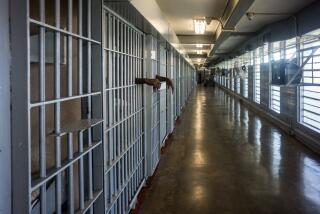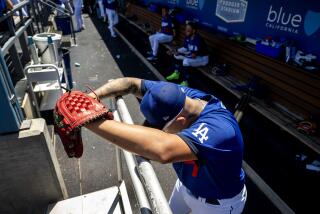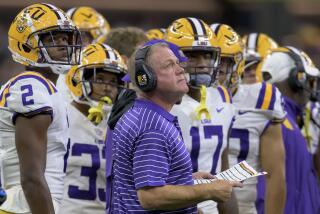In Saints bounty case, Paul Tagliabue’s decision is really a tie
When he was commissioner of the NFL, Paul Tagliabue was often regarded as the smartest person in the room.
Tuesday, he reminded us why.
In ruling on the New Orleans Saints’ pay-to-injure bounty case, Tagliabue somehow found a middle ground that made the suspended players look like the winners, while protecting the league against any potential damages.
Tagliabue, appointed to hear the latest appeals of the four suspended players, affirmed the “factual findings” of Commissioner Roger Goodell but vacated any penalties to the players. Instead, he laid blame at the feet of Saints coaches and administrators, those who either ran the improper bounty program or knew about it and did nothing to stop it.
“In such circumstances, players may not have much choice but to ‘go along,’ to comply with coaching demands or directions that they may question or resent,” Tagliabue wrote in a 22-page decision. “They may know — or believe — that from the coaches’ perspective, ‘it’s my way or the highway.’ Coaching legends such as George Halas and Vince Lombardi are not glorified or remembered because they offered players ‘freedom of choice.’ ”
In that regard, the league has already taken action. Saints Coach Sean Payton was suspended for the season, General Manager Mickey Loomis sat out half the season, and former defensive coordinator Gregg Williams, who by all accounts ran the program, has been indefinitely banned.
On hold during the appeals process was the suspension of the players — Jonathan Vilma, Will Smith, Scott Fujita and Anthony Hargrove — so they were eligible to be on the field.
Tagliabue does not take issue with the league’s version of the facts, so he does nothing to strengthen any future legal action by any of the players or coaches. And if anything, Goodell, the law-and-order commissioner, looks overly vigorous in his effort to impose the rules.
Goodell already has taken a credibility hit over the course of this ordeal, especially in New Orleans — site of the upcoming Super Bowl — where he’s seen as the saboteur of the formerly elite Saints, now 5-8.
At this point, every move the league makes has to be viewed through the prism of player safety, and specifically how decisions will play to a jury that one day could be weighing head-injury cases that could cost the NFL billions.
For its own survival, the NFL can never be seen as being soft on dangerous play. Tagliabue’s ruling only made Goodell look diligent to a fault, ready to pounce on any player or team that made the game less safe.
“Rightly or wrongly,” Tagliabue wrote, “a sharp change in sanctions or discipline can often be seen as arbitrary and as an impediment rather than an instrument of change. This is what we see on the record here.”
Goodell had his hand slapped in a public way, but little more. He probably knew what the outcome would be, and the league still wound up punishing the Saints severely. The team was fined $500,000 — in addition to the individual fines of the coaches and Loomis — and lost two second-round draft picks. The loss of Payton is palpable. The Saints took their medicine.
Tagliabue’s ruling allows both sides to claim a hollow victory, while reinforcing the league’s assertion that he was an impartial arbiter. After all, had he ruled strictly in favor of the league, there would have been an instant protest from the players that this was just another wingtip-wearing executive protecting one of his own.
This isn’t the end of Bountygate. There’s still the outstanding matter of Vilma’s defamation suit against Goodell, which the linebacker plans to pursue.
Tagliabue, who in his ruling called Vilma’s statements regarding a $10,000 bounty on Brett Favre “conflicting,” gave Vilma no ammunition for his case.
Peter Ginsberg, Vilma’s attorney, said: “It is regrettable that the NFL continues unjustifiably to attack the New Orleans Saints, an organization comprised of decent and honest people who continue to stand strong in the face of these baseless attacks.”
Tagliabue, like a boxing referee, stepped in between the parties and stopped the fight, awarding both half a victory.
And half a victory is no victory at all.
More to Read
Go beyond the scoreboard
Get the latest on L.A.'s teams in the daily Sports Report newsletter.
You may occasionally receive promotional content from the Los Angeles Times.







